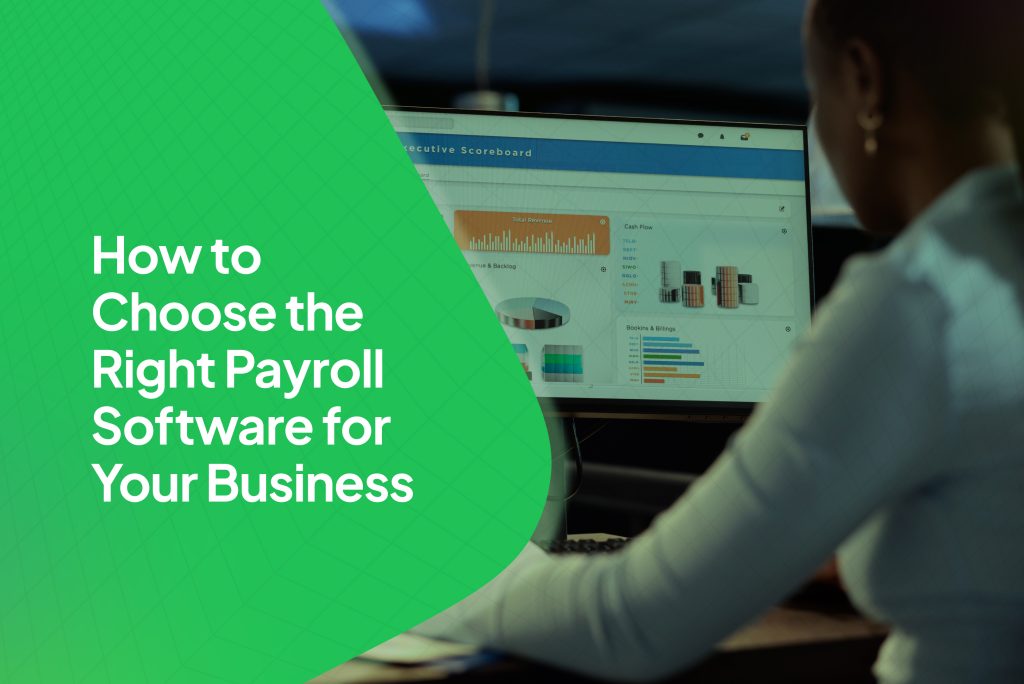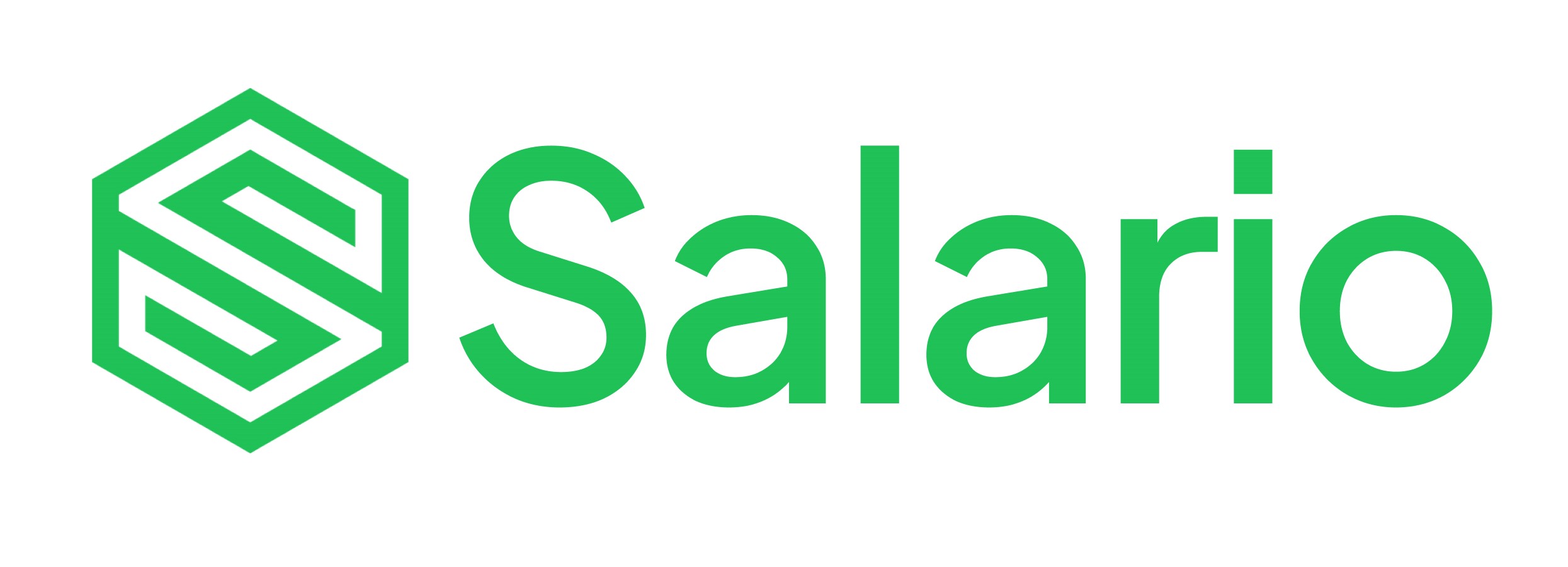
For many businesses, when it is time to choose the right payroll software for their business, they face a dilemma. How do they identify what payroll software is right for their business? Are there criteria they ought to look out for before making this choice? What does getting it right from the get-go mean for their business?
Choosing the right payroll software is a critical decision that can significantly impact your business’s efficiency, compliance, and overall success. With so many options available, it’s essential to evaluate your business needs, understand the key features to look for, and ensure the software aligns with your long-term goals. By making an informed decision from the start, you can streamline payroll processes, reduce errors, and focus on growing your business. This guide will walk you through the essential steps and considerations to help you select the perfect payroll software for your business.
Understanding Your Business Needs
Before selecting the right payroll software for your business, it’s crucial to assess your company’s unique requirements. The payroll system that works best for one business might not be ideal for another, so a thorough evaluation of your needs ensures you invest in a solution that aligns with your operations. Below are key factors to consider.
Assessing Company Size and Structure

The size and structure of your business play a major role in determining the type of payroll software for your business. A small business with a handful of employees may require a straightforward, cost-effective system, while a large enterprise with multiple departments, locations, and pay structures will need a more advanced solution with scalability, automation, and integration features.
Understanding whether your business operates from a single office or has branches in different regions is also crucial. If you have remote employees or international staff, you’ll need payroll software that supports multi-location payroll processing and compliance with different tax regulations.
Identifying Payroll Complexity
Payroll processing varies in complexity from one company to another. Businesses with standard, fixed salaries have simpler payroll needs compared to those with multiple pay structures, bonuses, overtime, or commission-based pay.
Additionally, if your company offers benefits like health insurance, pension schemes, or other deductions, choosing the right payroll software means ensuring it can handle these without errors. A system that automates calculations, tax deductions, and compliance checks reduces manual work and minimizes payroll errors.
Considering Future Growth
While your current payroll needs are essential, it’s equally important to consider how they may evolve. If you plan to scale your business by hiring more employees or expanding to new locations, your payroll software should be able to accommodate this growth.
A scalable payroll system ensures you won’t need to switch platforms as your workforce increases. Look for software with flexible pricing plans, add-on features, and integration capabilities to support business expansion without disruptions.
Identifying Employee Types
Your workforce composition directly impacts payroll management. Do you employ full-time, part-time, contract, or freelance workers? Each category may have different tax implications, pay cycles, and benefits.
A robust payroll software for your business should allow you to categorize employees accordingly and automate salary processing based on employment type. Some platforms also offer self-service portals where employees can access their pay stubs, update information, and track their earnings, reducing administrative workload.
Compliance with Payroll Regulations
Every business must comply with payroll regulations, tax laws, and labor policies. Failing to adhere to these regulations can result in penalties and legal complications.
Your payroll software should stay updated with changes in tax laws, minimum wage adjustments, and statutory deductions. Features like automatic tax updates and compliance tracking ensure your payroll processing remains accurate and legally compliant, saving you from manual recalculations or costly errors.
Key Features to Look for in Payroll Software

Many payroll systems come with many features that could be both helpful and overwhelming. These features often help to enhance the capabilities of the payroll system, but when they border on too much, they can reduce the ease of use of the payroll system. We have discussed key features to look out for in good payroll systems in the past, so rather than go in-depth, we will just highlight a few must-haves when choosing payroll software for your business.
- Ease of Use—While everyone needs a powerful payroll system, no one wants one that makes navigating and executing difficult.
- Compliance with Local Tax Laws—A key essential for payroll software is compliance with the tax laws of the business environment. This can save your business from a whole lot of trouble.
- Integration with Existing Systems—No one wants a payroll that is incompatible with other existing company systems.
- Employee Self-Service Portals—Self-service portals for employees elevate the payroll experience for employees and allow participation and inclusion in the payroll process.
- Data Security—Data security should be a top priority when looking for a system to manage financial records and other employee data. Payroll security can cost your business if it is not prioritized.
Evaluating Software Providers
Once you’ve identified your business’s payroll needs, the next step is to assess different payroll software providers to find the best fit. Choosing the right payroll software for your business goes beyond just features; it’s about reliability, cost-effectiveness, and long-term support. Here’s how to evaluate providers effectively.
Reputation and Customer Reviews
A payroll provider’s reputation speaks volumes about its reliability and performance. Look for established providers with a strong track record of serving businesses similar to yours. And when considering new services, try as much as possible to peek behind the veil through demos and free trials.
Reading customer reviews on platforms like Google Play Store and community forums can give you insights into real user experiences. Pay attention to feedback on software reliability, ease of use, and customer service responsiveness. If a provider has consistent complaints about technical glitches or poor support, it may not be the right choice.
Pricing and Scalability

Cost is a key factor when selecting payroll software for your business. Pricing structures vary. Some providers charge a flat monthly fee, while others use a per-employee or per-payroll model. Understanding how these costs align with your budget and payroll frequency is essential.
Scalability is another crucial consideration. If your business grows, will the payroll system accommodate more employees without significantly increasing costs? Some providers offer flexible plans that allow you to scale up as needed, while others may require you to switch to a higher-priced package.
It’s also important to watch out for hidden costs. Some software may charge extra for tax filing, compliance updates, or additional integrations. Always review pricing plans carefully to ensure transparency.
Customer Support and Training
Payroll errors can have serious consequences, so having access to reliable customer support is non-negotiable. Before committing to a provider, evaluate the support options available.
- Do they offer 24/7 support, or are there limited service hours?
- Is support available via live chat, phone, or email?
- Are response times fast, especially during payroll processing deadlines?
Additionally, consider whether the provider offers training resources such as tutorials, webinars, or a knowledge base, i.e., a blog, whitepapers, etc. A user-friendly payroll system is important, but onboarding and ongoing support ensure you can maximize its features without disruptions.
Comparing Top Contenders
Once you’ve narrowed down your options, it’s time to compare the leading payroll software providers. Many sites offer reviews of top payroll options in Nigeria, either on one-on-one comparisons or in analyzing several similar options. Going through these reviews can give you insights into how your options stack up against each other.
Requesting Demos and Free Trials
Most payroll software providers offer free trials or live demos, which can give you hands-on experience before making a commitment. Use this opportunity to test the platform’s user interface, ease of navigation, and overall functionality.
During the trial, try running a sample payroll to assess the software’s efficiency. Consider reporting, tax calculation, and automation constraints. Additionally, engage with the support team to gauge their responsiveness and willingness to assist.
By taking advantage of demos and trials, you can ensure that the payroll software you choose aligns with your business needs before making a long-term investment.
Conclusion
Choosing the right payroll software for your business should not be a shot in the dark; there are guides and steps you can take to ensure that you pick a payroll software for your business that meets your needs and helps you accomplish more.
Salario provides you both with resources to educate and help your payroll knowledge while giving you one of the best payroll software for businesses in Nigeria. You can request a demo or sign up to enjoy seamless payroll management with automation capabilities.
